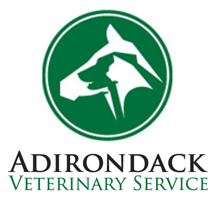A Guide to Vaccination for Your Horse
<p><em>To return to <a href=”/pet-care-articles/”>Pet Care Articles</a></em></p>
<p> </p>
<p>A program for control of infectious diseases is an important component of good husbandry directed at maximizing the health, production and performance of your horse(s). This program should be directed toward reducing the exposure to infectious agents in your horses environment, minimizing the factors that weaken his/her immune system and enhancing the resistance to disease by vaccination. Management practices that reduce the risk of exposure to infectious disease, coupled with appropriate use of vaccines will in time lower the incidence and severity of infectious disease. Differing degrees of exposure will result in us recommending various vaccination programs for different circumstances.<img class=”alignright” src=”/wp-content/uploads/sites/86/2019/side-horse.gif” alt=”horse’s photo” ></p>
<p> </p>
<p>Some of the vaccines that are currently available for horses to aid in the prevention of disease include Tetanus, Eastern and Western Encephalomyelitis, Equine Influenza, Rhinopneumonitis, Strangles, Rabies, West Nile Virus, Potomac Horse Fever, Botulism and Equine Viral Arteritis. One should understand that not every horse needs to be immunized against all of these diseases each year, but rather a vaccination program can be developed by us by taking into account your horses age, occupation, travel schedule and risk of exposure to these various diseases. Many of these diseases are found grouped together into multi-valent vaccines in order to minimize your inconvenience and discomfort to your horse. </p>
<p> </p>
<p>In order to protect foals during their first few months of life, broodmares should receive their annual booster vaccinations 4 – 6 weeks prior to their anticipated foaling date. It is also essential that foals receive adequate quantities of the mare’s first milk; the colostrum, within 6 hours of birth to ensure ample transfer of disease fighting antibodies to them. A foal born from an appropriately vaccinated mare should receive their initial vaccination against most diseases no sooner than 6 months of age. In areas where Encephalomyelitis and Rabies are prevalent, or foals born from unvaccinated mares, vaccination should begin at 3 to 4 months of age. </p>
<p> </p>
<p>For most killed (inactivated) vaccines, a series of multiple (generally 3) doses must be administered initially in order to produce a protective immunity. After this initial series of vaccines, booster doses at various intervals will be productive at keeping your horse healthy.</p>
<p> </p>
<p>After receiving any vaccine intramuscularly, your horse may experience local muscular swelling and soreness. There may also be some self-limiting signs such as fever, anorexia and lethargy. These adverse reactions are not always predictable but are part of the inherent risk of vaccination. We therefore recommend that you not ask us to vaccinate your horse within 2 weeks before a show, performance event, sale or international shipment. This allowance of time should be sufficient for production of antibodies prior to the time your horse may be exposed and to recover from any unexpected adverse reaction that might otherwise interfere with your plans for shipping or showing.</p>
<p> </p>
<p><em>To return to <a href=”/pet-care-articles/”>Pet Care Articles</a></em></p>
